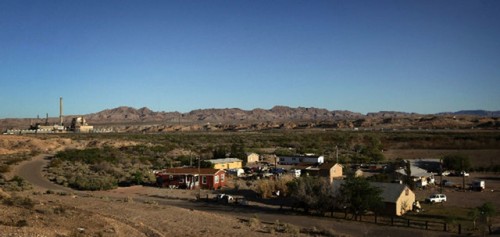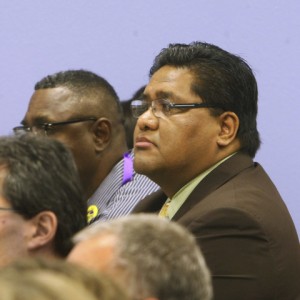By Patrick Springer, The Jamestown Sun
FARGO — Partnerships involving the Spirit Lake Tribe, Bureau of Indian Affairs and others are credited with helping to rebuild child protection programs on the reservation.Wednesday will mark the two-year anniversary of the handover of child protection and foster care services from the Spirit Lake Tribe to the BIA.The switch, made at the prodding of the North Dakota congressional delegation, came in the midst of major gaps in the safety net for children on the reservation.Among other problems, Spirit Lake children were being placed in unsafe foster homes, and suspected abuse and neglect cases were not always investigated and followed up.The BIA continues to operate the child protection programs while the tribe delivers most other social services, although the tribe hopes someday to resume full responsibility for social services.“They’re making progress,” said Sen. John Hoeven, R-N.D., who noted staff vacancies still pose challenges. “Getting the right people and getting them trained is the priority.”The BIA has filled a supervisory social worker position but continues to bring in staff from other reservations to run programs. It is contracting with a firm to help maintain services until positions are permanently filled.“The contract will provide some stability there,” said Lawrence Roberts, deputy assistant secretary of the U.S. Department of Interior for Indian Affairs, who visited Spirit Lake for 2½ days last week.“These social workers will be starting in a matter of weeks,” he said, referring to the contract workers, who first must clear a background check.Social workers are in demand throughout North Dakota, complicating the search, Roberts said.Meanwhile, the Spirit Lake tribe also is filling social services positions. It recently hired a case manager and is working to fill another case manager position, said Melissa Merrick-Brady.Candidates have been interviewed, and the position should be filled soon, and the tribe’s social services will be fully staffed, she said.“When I came, we had no case managers; we were struggling,” said Merrick-Brady, who became the tribe’s social services director in July after being appointed interim director in March. “The staff was overwhelmed, overworked.”The Department of Interior is providing a grant of almost $800,000 to bolster Spirit Lake’s tribal court and guardianship programs.The grant will pay for two guardians to represent vulnerable children, and a child service and Indian child welfare presenter to appear in court, Roberts said.The training and grants will help social services better coordinate with tribal court and guardians, and help lift some of the burden on social workers, Merrick-Brady said.The collaborative approach was highlighted last week with a symposium at Candeska Cikana Community College in Fort Totten, when officials laid out plans for improving services at Spirit Lake.“The discussion was extremely productive,” Roberts said. “You had all the relevant players in the room,” including the tribe, BIA, U.S. Department of Health and Human Services, and state and local officials.“We have a lot of work to do, but I think the foundation was laid,” Roberts said.The North Dakota congressional delegation also is pursuing legislative remedies, including more stringent background checks of foster households for American Indian children.Legislation in the House and Senate would apply the same foster care standards in Indian Country that now are required elsewhere. The legislation has passed a House committee, and Hoeven expects Senate approval later this year or early next year.Sen. Heidi Heitkamp, D-N.D., has introduced legislation to create a Commission on Native Children. If passed, she said, the bill “would help us tackle many of the challenges we’ve seen on Spirit Lake and go a long way in improving the lives of Native children.”The bill also would provide for a study into issues facing Native children, including high rates of poverty – such as unemployment, child abuse, domestic violence, crime, substance abuse and few economic opportunities – and make recommendations on how to make sure Native children are better taken care of and given the opportunities to thrive.Rep. Kevin Cramer, R-N.D., agreed that coordination among service providers at Spirit Lake has improved.“We have seen an improvement in terms of communication,” he said.


